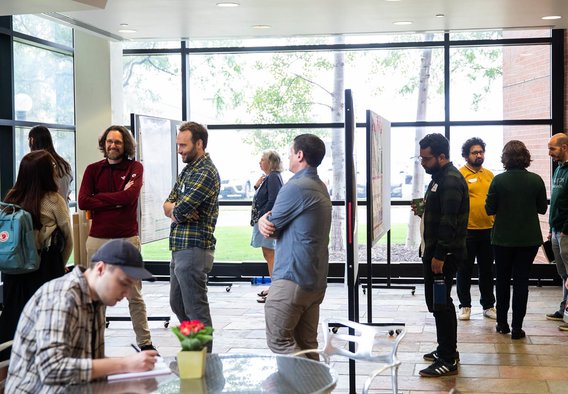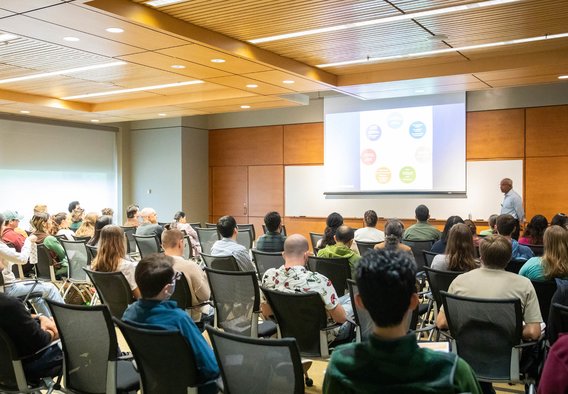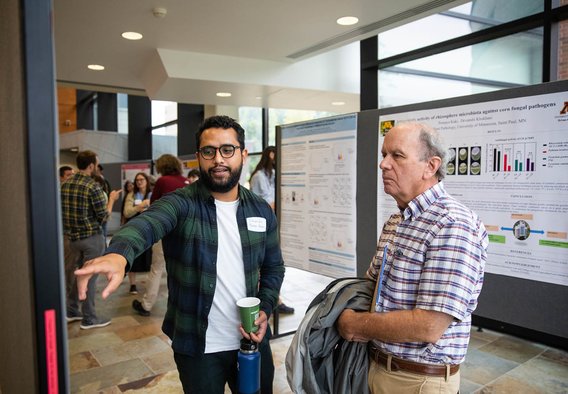
Fungi play key roles in so many areas of our natural world, impacting humans, animals, and plants in profound ways, and many ways that fungi impact biodiversity and ecosystem processes are still being discovered. Fungi has such broad and diverse roles that those studying its behavior are scattered across higher-ed institutions, everywhere from plant and agricultural fields of study to schools of medicine and pharmacy.
University of Minnesota faculty Devanshi Khokhani, Ashish Ranjan, Peter Kennedy, and Megan McCaghey brought together interdisciplinary researchers of fungal interactions by hosting a Fungal Symposium, where researchers from various universities and fields gathered for presentations, posters, conversation, and networking.
The one-day event in September 2023 attracted over 100 attendees from various institutions, including the University of Minnesota, University of California at Davis, Cornell University, and University of Massachusetts at Amherst. Those researching plants and ecosystems were joined by researchers studying human and animal health, pharmaceuticals, nursing, and other disciplines.

“Our goal was to bring together scientists from various disciplines and career stages around a shared interest in harnessing knowledge about cross-kingdom interactions between fungi and other eukaryotes or prokaryotes to better manage both natural and agricultural ecosystems as well as benefit host health,” said Khokhani. “Based on the great turnout from different disciplines, their participation during the seminars and poster session, and their interaction and networking with the presenters, we feel like we achieved our goal.”
She adds that the impact on student attendees was a highlight: “Right after the seminar, several graduate students came up to the organizers and let us know that they really enjoyed attending the symposium and appreciated expert talks from diverse backgrounds all in one place.”
While the Fungal Symposium organizers don’t plan to host an event in 2024, they are seeking new faculty collaborators at any stage in their careers for a future interdisciplinary event. “We would really like to let other faculty get involved in hosting another one-day symposium in 2025 with a different theme. We are happy to pass on our experience or work with them again. Depending on the theme next time, it would be great to include a speaker from industry who would speak from the application side,” said Khokhani.

